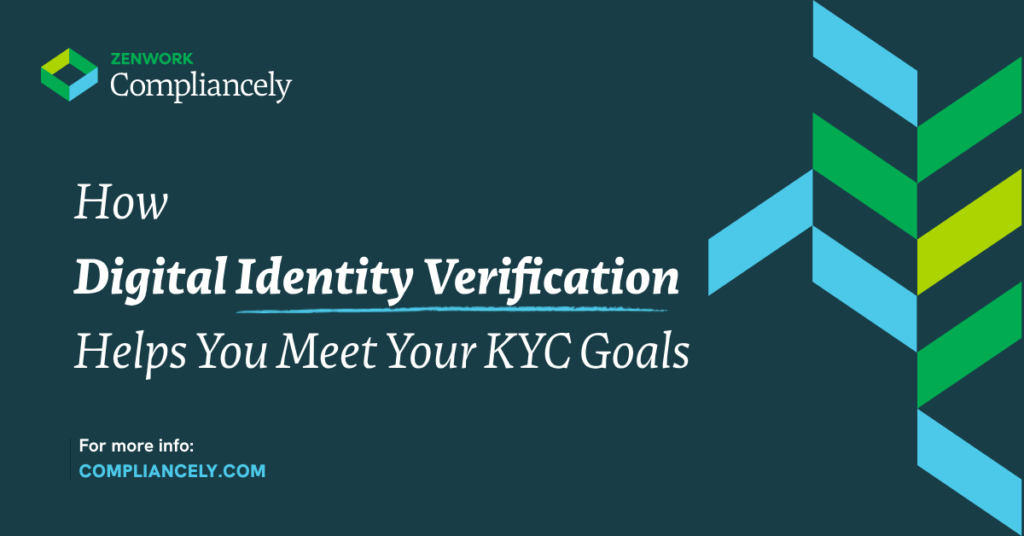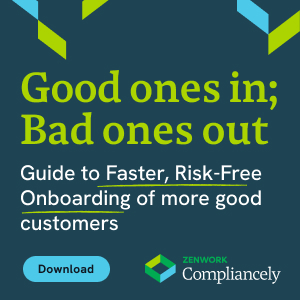How Digital Identity Verification Helps You Meet Your KYC Goals

With many businesses segueing into the digital transformation wave, global industries are embracing the advantageous aspects of identity verification solutions to identify the individuals and entities they conduct business with and prevent fraudulent activities.
In light of the increased risk of money laundering and identity theft, it is worthy to pay attention to your KYC operations and optimize areas of your human-centric funnels that might bring civil and financial risks.
Today, we will be discussing in length the importance digital identity verification holds in major industries like banking, finance, lending, health care, e-commerce, cryptocurrency, and more. Regardless of the industry, you’re in, identity validation solutions will help streamline your KYC operations and help maintain regulatory compliance.
So, let’s get to it.
Identifying Individuals And Entities
Identity verification allows you to verify the real identities of individuals, investors, prospects, recruits, entities, groups, organizations, businesses, and more. Usually, businesses interview individuals or their representatives for some identity details, such as the name, address, place of birth, and national identification number. This information is used to identify and conclude if the provided information is valid and correct.
Verifying the Identities of Individuals And Entities
Once you have identified the individuals with their basic identity information, you can proceed to further verify their identities by the official records of the federal agencies, such as the IRS and Social Security Administration. This allows you to approve risk-free profiles quickly and assess high-risk profiles for further scrutiny.
Validating The Identities Of Individuals and Entities
Digital proof of identity is obtained by a team of KYC specialists within an organization. This team sends out forms to applicants (in case of commercial ecosystems) or patient forms (in case of health care ecosystems) to obtain information about the individual or entity that wants to be onboarded into the company (either as a customer or a stakeholder). This information is further scrutinized against the official federal records.
For example, if your bank is onboarding certain profiles who have an ill history of non-payment of loans, then your KYC team will take all measures to identify and validate the identity details provided by the customer to assess all possibilities of risk.
This is called customer due diligence. You can learn more about due diligence in detail here. The KYC team can ask for additional proof of identity to help support the identity claims made by the prospects.
Analyzing Identity Insights From Authorized Data Lists
Once sufficient information has been submitted by the customers, your business is in charge of further validating the sources of this information. You can use the collected information to verify against federal watch lists and data lists, allowing you to gain insights into the risk angles of a customer and draw conclusions per your investigations and findings.
If your findings lead you to conclude that a profile could be bringing in more risk than business, it is up to your business to decide if the profile is worth taking in.
Financial regulatory bodies around the world recommend businesses to validate the information within reason and feasibility and conclude the investigations when the risk is out of the scope of the business.
The primary goal of analyzing high-risk profiles is to ensure transparency, reduce business friction, and ensuring that the incoming profile does not have a history of money laundering or terror financing.
Reporting Suspicious User Activity
If your customer’s account or statements shows suspicious activity, such as sudden inflow of huge funds, cross-border location transactions, anonymous transactions, or if the customer is not disclosing the sources of funding, and so on, you must report such suspicious activities to law enforcement by drafting and submitting Suspicious Activity Report.
With Compliancely real-time identity verification API, your investigations are powered with AI-driven bulk identity validation solutions and automated reports, which help accelerate your KYC operations and onboard quality profiles.
In Conclusion
As the technology evolves, fraudulent individuals and groups masterfully leverage the blind loops within the robust financial systems of a country, which are leading to mass terror funding, narcotics peddling, and other forms of crime.
Fundamentally, all identity verification solutions are designed to help promote transactional transparency, organizational productivity, reduce identity crimes, and minimize the scope for corrupt or illegal practices.

